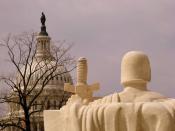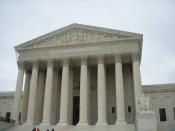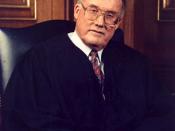The first Amendment: Congress shall make no law respecting an establishment of religion, or prohibiting the free exercise thereof; or abridging the freedom of speech, or of the press; or the right of the people peaceably to assemble, and to petition the government for a redress of grievances. The First Amendment became the law in January 16, 1786, and it protects the right to freedom of religion and freedom of expression from government interference. This amendment also allows the citizens of the United States freedom of expression and consists of the rights to freedom of speech, press, assembly and the right for citizens to petition the government regarding grievances, and it also implies that we all have the right to our own beliefs.
Taking a glance of what I have learned about the First Amendment, I realize that this amendment is the most important and one of the easiest to understand.
I say that because it is short, uncomplicated, understandable, simple, and about as unambiguous as you can get. The 4 terms such as, "make", "shall", "freedom", and "abridging", have clear meanings in everyday language. What I like most is that Congress cannot pass one law that will in any way, shape, or form limits the power of any person or body to speak or to publish. In this paper I will discuss what the First Amendment does for me, evaluate the responsibilities that the Constitution gave to me as an American citizen, discuss a few cases related to the three provisions of the First Amendment, and why these case(s) needed to be heard and interpreted by the Supreme Court. I will also discuss how the Supreme Court's decision in each case continues to affect American's rights today.
One case that I found was extremely interesting; it is the Boy...


